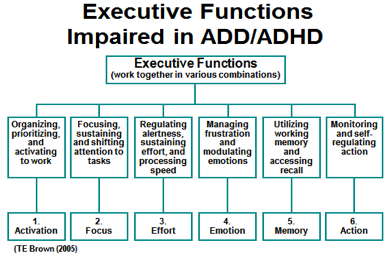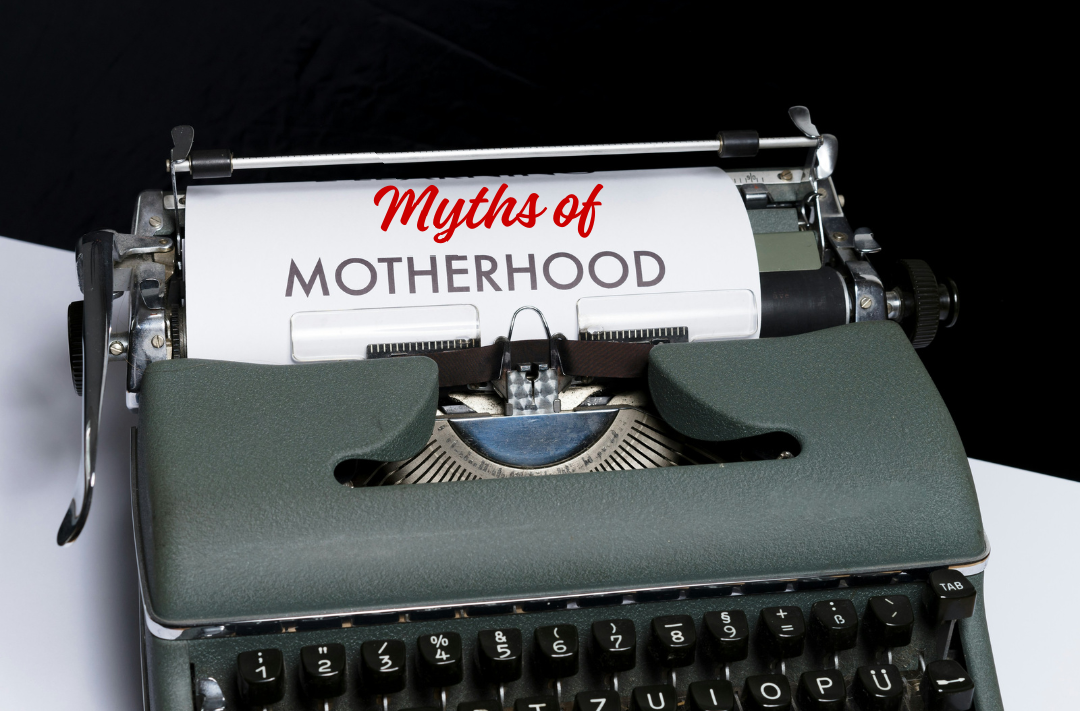All moms, dads, and parents, can experience burnout when it comes to the role of parenting. But for moms with ADHD, the daily load can feel impossible to manage. The endless cycle of parenting tasks, executive dysfunction, sensory overload, masking, emotional dysregulation, societal pressures, and sometimes unequal division of household and parenting duties create the perfect storm for ADHD mom burnout.
Many times, as ADHD moms struggle with their own executive function, they also have to be the executive function for the whole family. This leads to a chronic state of overwhelm. ADHD moms also tend to push themselves to “keep up” with neurotypical parenting expectations while struggling with time blindness, disorganization, sensory sensitivities, and emotional intensity. This results in feelings of inadequacy and worthlessness. But ADHD mom burnout isn’t just about exhaustion. It’s an intense state of mental, emotional, and physical depletion that leaves her feeling overwhelmed, empty, angry, resentful, and detached.
Here are some common themes I hear from ADHD mom clients who are experiencing burnout:
- Every day, I just can’t wait for the day to be over. Then I feel guilty for feeling that way.
- There is always so much clutter. But I feel paralyzed to do anything about it. I must not good at this mothering thing.
- When my child just needs attention, I am so overstimulated I just want to be left alone. And then I feel guilty.
- I am so overwhelmed every morning trying to get the kids out of the house. And my partner is just sitting there. Why can’t they see I am drowning and help?
- I know my ADHD child is understimulated when he picks fights with his sister. But I am so overstimulated that I yell at him. Then I feel guilt and shame because I am supposed to be the one to know how to help him. But in that moment, I feel like I can’t stop myself.
ADHD mom burnout can happen for many different reasons, here are a few:
Social expectations of motherhood and executive dysfunction
Social expectations of women and mothers negatively impact all mothers. However, many of these expectations require her executive functioning to function properly. For women with ADHD, there is a constant struggle with their executive function. Below is Tom Brown’s table of executive functions that are compromised in ADHD.

As you can see, these functions are how you navigate every aspect of your day. Even for a woman whose ADHD is well-managed, it’s still a chronic struggle.
Managing household duties like doing dishes, meal planning/shopping/cooking/cleaning up, laundry, packing the diaper bag, cleaning up after kids (and perhaps her partner), trying to get the kids ready for school, etc. all require executive function. And doing dishes, cleaning, or laundry are tasks that require no thought.
No-thought tasks are the hardest to do when you have ADHD. This is because of executive dysfunction, and there is not much reward in doing them.
People with ADHD have an interest-based nervous system, due to the dysfunction of the dopamine reward pathway. This makes these everyday, ongoing tasks high-stress with no reward. They use up more mental and physical energy than it does for a neurotypical – especially if she struggles with activation.
If her household includes the expectation that as the wife and mother, she is solely or mostly responsible for house management and all that goes into parenting, then she is trying to “keep up” with mostly or all high stress with no reward (or appreciation) tasks all of the time. This mental load of motherhood is too much for any mom, but for an ADHD mom, it is impossible. Many times she receives messages from others and herself, “I don’t understand, why can’t you just…”, leaving her feeling inadequate and worthless.
Rejection sensitivity
Rejection sensitivity dysphoria (RSD) (a common struggle for people with ADHD) is a term that refers to an intense emotional response to real or perceived criticism, fear of or feeling like one has disappointed someone they care about, or being rejected. The feeling is so intensely painful, it can elicit symptoms of a major depressive episode.
If she is getting messages from others and her internal critic, “I don’t understand, why can’t you just…”, the feelings of inadequacy and worthlessness are overwhelming and debilitating due to RSD. A new mother with ADHD can experience this when she is unable to soothe her baby, or if her partner makes a comment about her parenting, intending to be helpful or supportive, but she perceives it as criticism.
Not having an adequate support system
All mothers and families need a village. However, moms with ADHD get overwhelmed and burned out faster than neurotypical mothers for some of the reasons mentioned above. The reason for the village is to support her and her children so she can care for herself and be cared for, outside of being a mother.
A village can include other family members, friends, babysitters, doctors, tutors, teachers, therapists, coaches, etc. If she doesn’t have an adequate support system, she is not getting much time to get away from her responsibilities as a mother. Yes, parenting is a 24-hour, 365 days a year job, theoretically. But that doesn’t mean she shouldn’t take breaks and hand off some of the responsibilities to others. If she doesn’t have enough help to step away from mothering to regularly do things that are fun, meaningful, and re-energizing, an ADHD mom will get burned out quickly.
Sensory Overload and emotion dysregulation
Emotion dysregulation is a symptom of ADHD that doesn’t get enough attention. Jessica McCabe, an author and ADHD expert describes why people with ADHD get dysregulated more easily in her How To ADHD YouTube channel video, ADHD and Emotional Dysregulation: What You Need to Know.
It can be hard to self-regulate when her executive function doesn’t function, she is feeling overwhelmed, touched out, sensory overload, and either hyperaroused or underaroused. If her children are also neurodiverse showing distress by picking a fight with their sibling, running around the house yelling and screaming, or having a meltdown, it can feel impossible to self-regulate in the moment due to sensory overload and executive dysfunction. And if she ends up yelling at her children, she later feels guilt and shame because she doesn’t want to be the mom who yells.
What are some things that can help? Here are a few:
Practice Self-compassion
One of the very many myths of motherhood is that you have to be a perfect mother. Well, there is no such thing as perfect, there is no such thing as a perfect mother, and there is no such thing as a perfect human being. Perfectionism is a cognitive distortion that only causes anxiety.
Dr Kristin Neff’s research on the practice of self-compassion shows that treating ourselves with kindness during moments of struggle can reduce stress, build emotional resilience, and interrupt the cycle of shame and self-criticism. This is important for all mothers, but moms with ADHD struggle every day due to their ADHD symptoms. Of course, there are many ways to manage the symptoms but it is still a consistent struggle.
What I like about her work is that she provides instructions (not too many) on how to practice self-compassion. As someone with ADHD, when someone just says, “Be kind to yourself”, I get confused because that is too vague. What does that look like?
She provides a clear framework that includes the core concepts of:
- Self-kindness vs Self-criticism
- Common humanity vs Self-isolation
- Mindfulness vs over-identifying
Part of the common humanity piece is to allow your humanness and accept that there is no such thing as a perfect human, i.e. perfect mother. You only have to be good enough. That is all any parent can ever be.
Managing Emotion Dysregulation
Self-care, self-care, self-care, self-care!! This can be anything from taking a bath, having dinner with friends, or anything that makes you feel good. I know it takes executive function to do these things. So start small, or add it to something you are already doing (habit stacking). If it is exercise, ask a friend to meet you after you have dropped the kids off at school. The stacking is meeting the friend on top of what you already do – dropping the kids off.
Dr Stuart Shanker wrote a great book called Self-Reg: How to Help Your Child (and You) Break the Stress Cycle and Successfully Engage with Life. If you weren’t taught how to manage your emotions growing up, this book provides insight on how to do so in healthy and productive ways. The book intends to guide parents on how to help their children to self-regulate. However, I think it can be used to guide the parent on self-regulation, too. This is kind of a win-win. It is also available on Audible and Apple Books if you prefer to listen instead of read.
Allow yourself to only care about ( I prefer to say “give a f@#$ about “, but I don’t want to offend anyone) 3 things a day. Your mental, physical, and emotional energy is limited, so it is important to conserve it.
External Help
People with ADHD need more external help than neuro-typicals to get motivated. Whether they are visual cues for working memory, using body doubling to get tasks done, or asking ChatGPT to create an ADHD-friendly schedule for your day, external support can make the difference between staying stuck and making progress. CHADD and ADDA are two great organizations that offer free body doubling sessions and support groups. They also provide a resource list for therapists and executive function coaching to help learn how to work with your brain.
ADHD mom burnout doesn’t mean you’re failing. It means you’ve been carrying too much for too long. You don’t need to do more. You need support, rest, and some compassion for yourself.
Jacqueline V Cohen is a Licensed Professional Counselor and ADHD Certified Clinical Services Provider. To learn more about her work, visit her website. You can also contact her by email.
Get your free copy of my e-book: Motherhood and ADHD
You will also receive a subscription to my newsletter.




2 Responses
I love this article and thank you It will be amazing if you were to write one about ADHD, single moms, parenting, ADHD, hyper Active Child, Experiencing, ODD behaviors .
I am glad you liked the article. I do have a blog on being a single parent with ADHD, not specifically with those behaviors, but being a single parent.How to Cope as a Single Parent with ADHD
I also have another article you might find helpful as well – 7 Incredibly Helpful Resources for Parents with an ADHD Child
Thank you for reading my blog!
Jacqueline